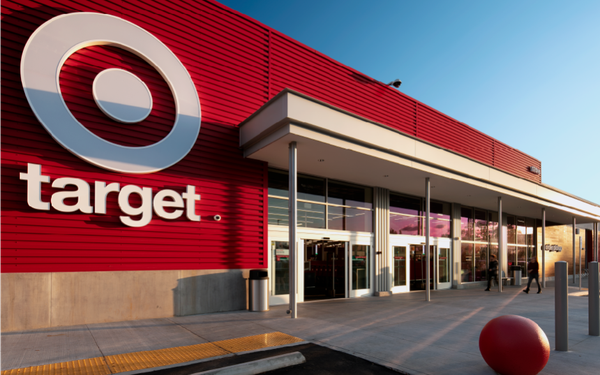
As expected, Target sales continued to
decline, marking 11 quarters of flat or falling sales. However, the extent of the decrease was slightly better than expected, with comparable sales falling 1.9% rather than the 3% many had
anticipated. Earnings also topped expectations. But the news that really surprised investors was the announcement that Michael Fiddelke, now the chief operating officer, has been named as the new
CEO.
Observers also have some serious doubts that Fiddelke, a Target lifer, will have the perspective and ideas required to help the retailer regain its style swagger. The company’s
stock fell 8% after the announcement.
Total net sales dipped 0.9% to $25.2 billion in the second quarter. Net earnings fell to $935 million, from $1.19 billion in the same quarter last
year.
While it was well known that a search was underway to replace Brian Cornell as CEO, many observers hoped that the board, which elected Fiddelke unanimously, would bring in an outsider
for a fresh take on the retailer’s growing list of problems.
advertisement
advertisement
The primary one? Shoppers like Target a lot less than they used to. Placer.ai reports that weekly foot traffic at its stores
has declined almost every week since Target’s January announcement that it would change course on diversity, equity, and inclusion policies. That move has alienated many Black, LGBTQ, and Gen Z
shoppers. And the early focus on boycotts seem to have given way to permanent aversion.
Target acknowledges that operational concerns, such as out-of-stocks, long lines and messy stores, are
growing. And it concedes that the “Tar-zhay” magic that once made it a favorite is fading.
In an interview with The Wall Street Journal, Fiddelke conceded that the chain had lost its way, starting with the chaotic early months of
the pandemic. “We leaned into the core of that category, and the second we did that, we lost a little bit of the fashion and trend that was our hallmark,” he told WSJ. “We
need to bring that back. Our unique lane in retail is when we lead with style and design.”
The sales decline is especially worrisome as consumers fret more about their finances and hunt
for lower prices. That mindset is boosting results at Walmart and other discounters, but not winning Target any new fans.
And tariffs may be about to become the Minneapolis-based chain’s
biggest headache. MarketWatch, citing
Bank of America data, reports that Target Corp. may need to raise prices almost twice as fast as Walmart, due to higher import exposure.
“This decline is entirely self-inflicted,”
writes Neil Saunders, managing director of GlobalData, a market research company. “Target, which used to be very attuned to consumer demand, has lost its grip on delivering for the American
shopper.”
Saunders doesn’t believe the problems are permanent: “Despite the DEI debacle, there is still a lot of consumer goodwill for Target. We have our doubts about
the new management team – which is essentially the old management team reshuffled – but it is only fair to give them a chance.”
Erin Lash, an analyst who follows Target for
Morningstar, is far more positive. She expects the company’s struggle to continue and forecasts a decline of nearly 3% for the year. Yet her initial read of the management change “suggests
Fiddelke is operating with urgency to return Target to a positive sales trajectory by making investments, particularly as related to products and the store experience,” she writes. “We
posit Target boasts an iconic brand and continued investments should facilitate low-single-digit sales growth over the longer term.”